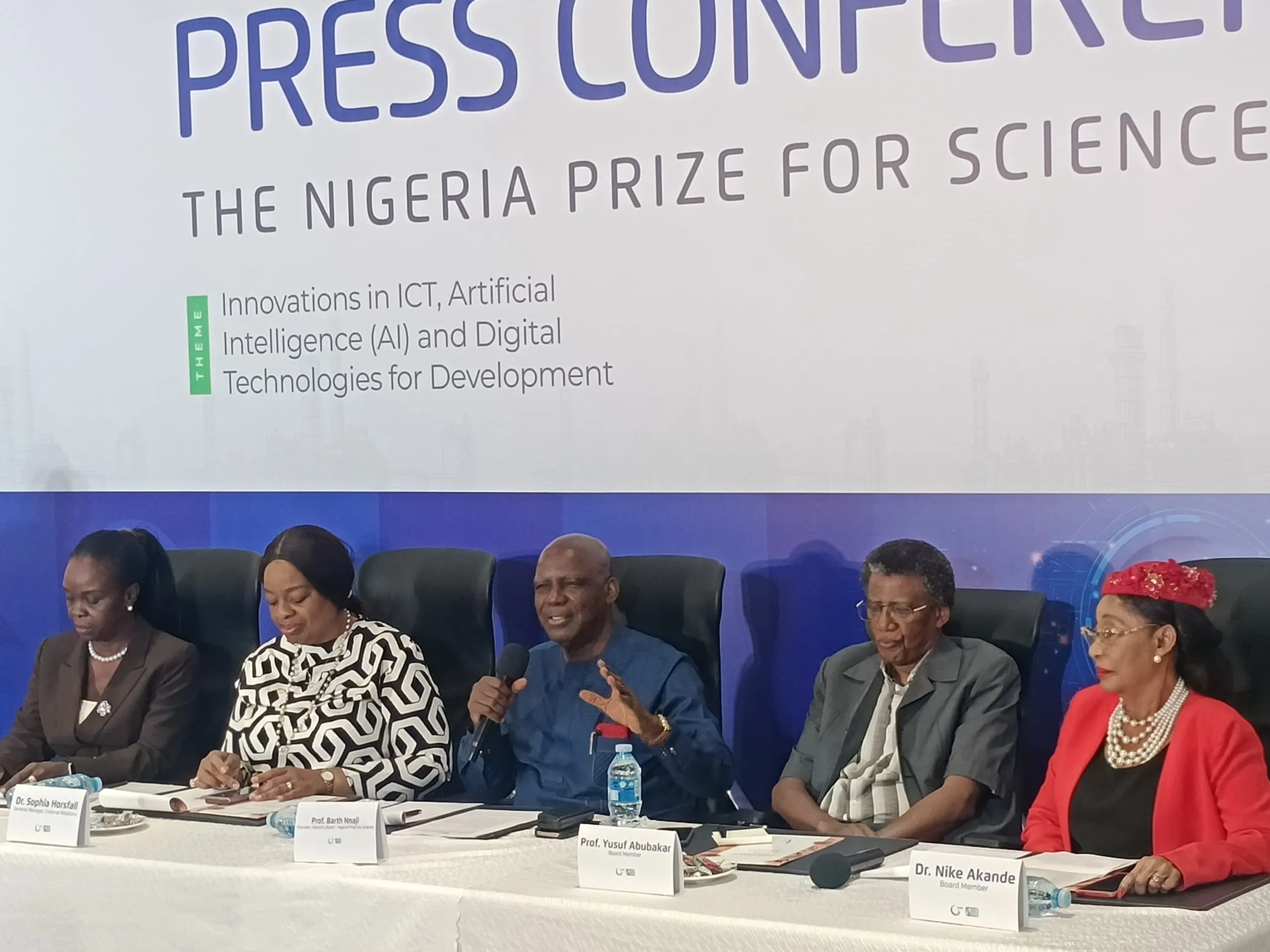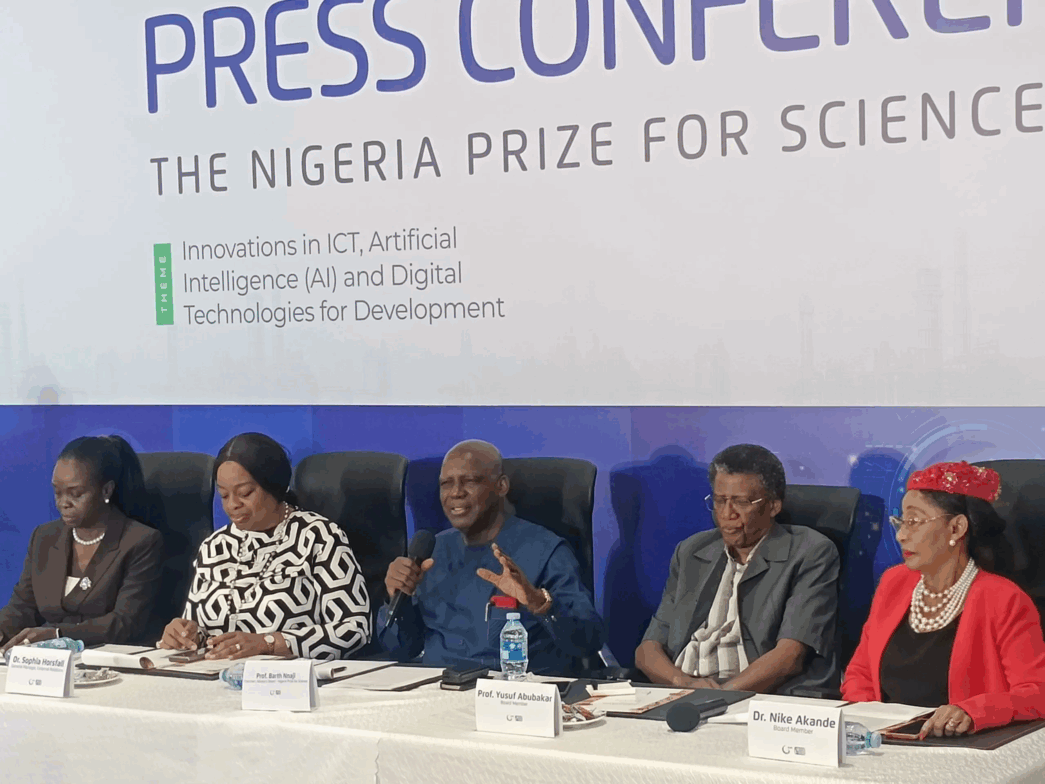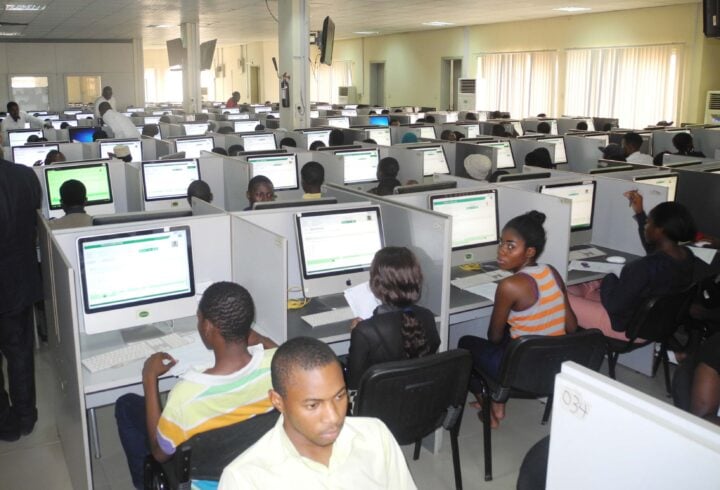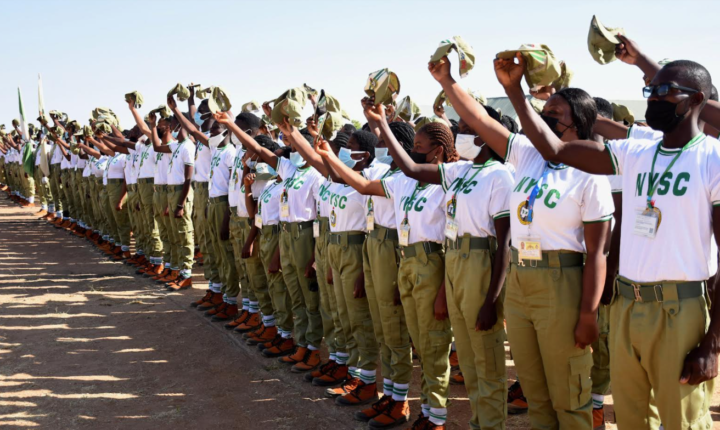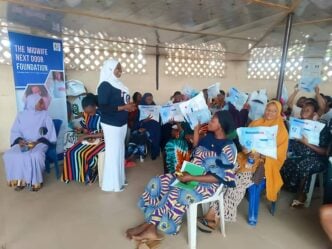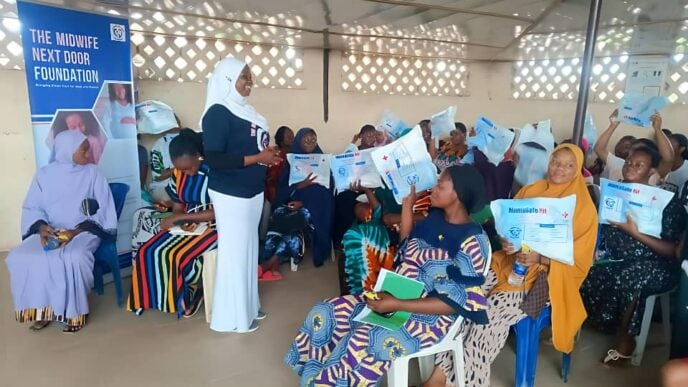Organisers of the annual Nigeria Prize for Science Africa have announced no winner verdict for the 2025 competition.
Established in 2004 by the Nigeria Liquified Natural Gas, the prize has honoured ground-breaking work addressing national priorities.
It encourages Nigerian scientists to adapt to global technologies and reimagine them to suit our unique realities.
The theme for the 2025 edition is tagged ‘Innovations in ICT, Artificial Intelligence, and Digital Technologies for Development’.
Advertisement
The organisers said 112 entries were received between the stipulated time of submission.
NLNG said it believes Nigeria’s sustainable development depends on building indigenous scientific and technological capacity.
The organisers also commended the “brilliant minds” who submitted their works, describing them as “champions of progress”.
Advertisement
They added that true victory for the innovative competition is not only in the prize, but in the collective advancement of science and technology for development.
Speaking at a gathering on Wednesday, Bart Nnaji, the chairman of the advisory board, said the board unanimously agreed that the participants lacked the wherewithal to meet the goal of this year’s edition.
Nnaji said a sum of $100,000 was placed as the grand prize.
The advisory board chairman said the organisers selected a panel of judges comprising professors and a very relevant scientist.
Advertisement
He revealed that the assembly process was free of any form of bias by the panel of judges in the evaluation criteria.
He, however, said the bodies concluded that all submissions “demonstrated commendable effort, but lacked the soundness, usability, and impact.”
“Scientists and innovators worldwide were invited to compete for the $100,000 prize, which honours groundbreaking solutions to challenges relevant to Nigeria. The call for entry is closed at midnight on April 30, 2025,” he said.
“To ensure a rigorous and credible process, a panel of judges comprising distinguished professors and a very relevant scientific expert was appointed by the Advisory Board and LNG Limited.
Advertisement
“The selection process also reflected both the gender and ethnic balance. At the inaugural meeting in Lagos, the panel of judges developed the 2025 Nigeria Prize for Science Entry’s evaluation criteria, subsequently approved by the Advisory Board.
“These criteria included academic track record, quality, recognitions, uniqueness, innovation, impact, commercialisation, soundness, and patent.
Advertisement
“Of the 112 entries received, 54 were found valid and progressed for adjudication. Then, there was shortlisting.
“The judges conducted independent reviews, produced a short list of 10, and the top 4 entries, which were ratified by the Advisory Board for further evaluation with a view to choosing a winner.
Advertisement
“It was unanimously concluded that all submissions demonstrated commendable effort, but lacked the soundness, usability, and impact that characterised the prize.”
The judges also discovered that some entries did not fully address all three thematic areas, while showing weakness in the following areas:
Advertisement
- The practicality of the innovations in solving scenario-specific problems.
- Lack of clarity on the operability of the innovations.
- No evidence of robust field testing of the innovations.
“You can be more disappointed than us sitting here. But I will clarify a little better. Anyway, this decision preserves the credibility of the selection process and upholds the reputation of the Nigeria Prize for Science,” he added.
“I wish to thank the NLNG Limited for its unwavering commitment to sponsoring this prize, even amid economic challenges. In the media, we deeply appreciate your invaluable publicity and urge you to continue in this worthy endeavour. Thank you very much.
“The no-winner, I want to point out, has happened before. And it’s about the rigorous process that must be undertaken to get the winner. So this is how it is.”
Nnaji said the decision to maintain the no-winner verdict was to maintain the standard of the prize and what it represents.
